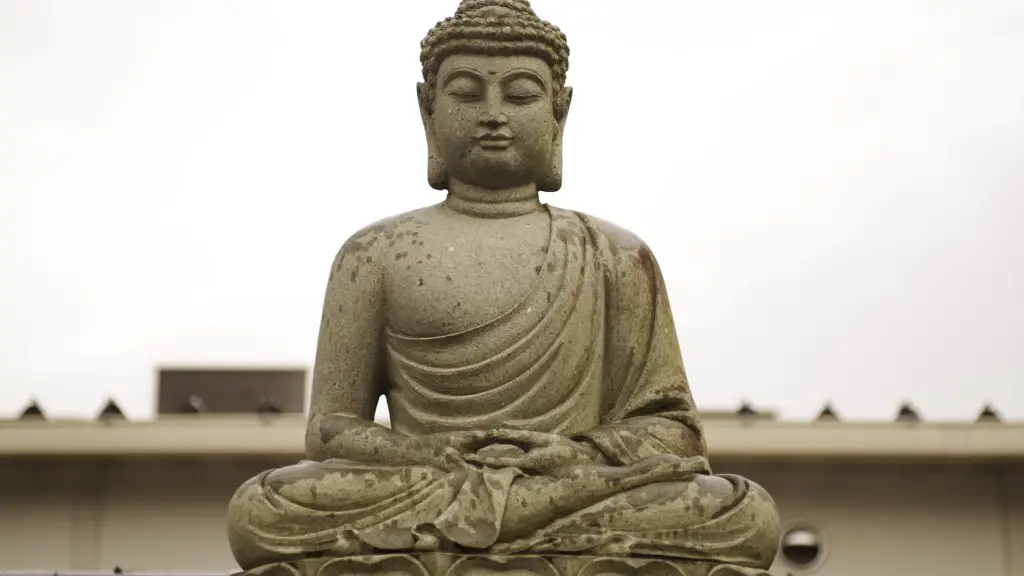What is Lust?
Lust is often described as an intense form of desire and longing, a strong drive to achieve something or have something that one desires. In Hinduism, it is seen as a great temptation that can lead to attachment, greed, and suffering, and must be resisted in order to attain liberation from the cycle of death and rebirth, known as moksha.
Lust can manifest itself in many forms, such as physical desire, craving for money, power, and status, and many other material comforts. In Hinduism, these attachments can hinder spiritual progress, as they can cause a person to remain entrapped in worldly desires and materialistic pursuits.
What is Hinduism?
Hinduism is an ancient religious tradition in India which dates back over 3000 years. It is the primary religion of India and Nepal, and is the world’s third-largest faith. Hinduism is based on the Vedas and Upanishads, which are old Sanskrit texts that discuss various philosophical and spiritual teachings.
Hinduism advocates that one should recognize that reality, or Brahman, is both formless and eternal. In Hinduism, the central goal is liberation, or moksha, which is a freedom from suffering and a union with the divine. Hinduism teaches that the way to achieve liberation is by following the path of dharma, or living one’s life in accordance with the principles of truth and duty.
How to Control Lust in Hinduism
The first step in controlling lust is learning to recognize and acknowledge it. According to Hinduism, recognizing and accepting one’s own desires is the first step in controlling and overcoming them.
One should try to be aware of the sources of one’s own lustful urges, and try to understand the reasons behind them. It is important to be mindful of the consequences of indulging in lustful desires, and to remember that such indulgence can cause suffering.
It is also important to practice self-discipline, such as controlling one’s thoughts, speaking less, engaging in spiritual practices such as reading and engaging in acts of charity, or seva.
The aim should be to cultivate contentment with what one has, and to focus on cultivating wholesome activities rather than the pursuit of worldly desires. The practice of detachment from worldly possessions and attachment to spiritual values can help one overcome lustful urges.
It is also important to practice non-violence, compassion, and truthfulness in all actions. According to Hinduism, these are the essential traits of an enlightened being, and can help one become aware of the consequences of indulging in lust.
The Role of Meditation
The practice of meditation is an essential part of Hinduism, as it can help one to be aware of one’s own desires and to learn to control them. Through meditation, one can develop an awareness of the sensations, thoughts, and emotions associated with lustful urges.
One can also learn to focus one’s attention away from such urges, and to move towards more wholesome goals and activities. Moreover, meditation can help one to cultivate the qualities of compassion, non-attachment, and contentment.
The Role of Rituals
Rituals are an important part of Hinduism and can help one cultivate an awareness of the consequences of indulging in lustful urges.
Rituals such as praying to gods and goddesses, fasting, and chanting mantras can help one concentrate on higher spiritual values and can help one become aware of the consequences of indulging in lustful urges.
The Role of Chanting
Chanting is an essential practice in Hinduism, as it can help one focus one’s attention away from lustful desires and can give one a greater understanding of spiritual knowledge. Chanting mantras, such as the Mahamrityunjaya mantra, can help one cultivate qualities such as patience, non-attachment, and equanimity.
The Role of Community
Being part of a spiritual community is an important part of Hinduism and can help one to become aware of the consequences of indulging in lustful urges.
It is important to be part of a community that cultivates the attitudes of acceptance, non-judgment, generosity, and compassion. Through such practices, one can learn to look at the world with a sense of detachment and to focus on spiritual values rather than indulging in lustful desires.
The Role of Nature
Spending time in nature is also beneficial for controlling lustful desires, as it can help one to cultivate an attitude of awareness and non-attachment. Nature can also help one to learn to appreciate the beauty of the world and to cultivate an attitude of openness and respect for all forms of life.
By observing nature, one can learn to develop an understanding of the interconnectedness of all life, and to cultivate a sense of contentment and peace.
Conclusion
In conclusion, controlling lust in Hinduism requires learning to recognize and acknowledge one’s lustful desires, practicing self-discipline and cultivating an attitude of contentment and non-attachment, engaging in rituals and spiritual practices such as meditation, chanting, and spending time in nature. By following these practices, one can learn to control their desire and live according to spiritual values.

